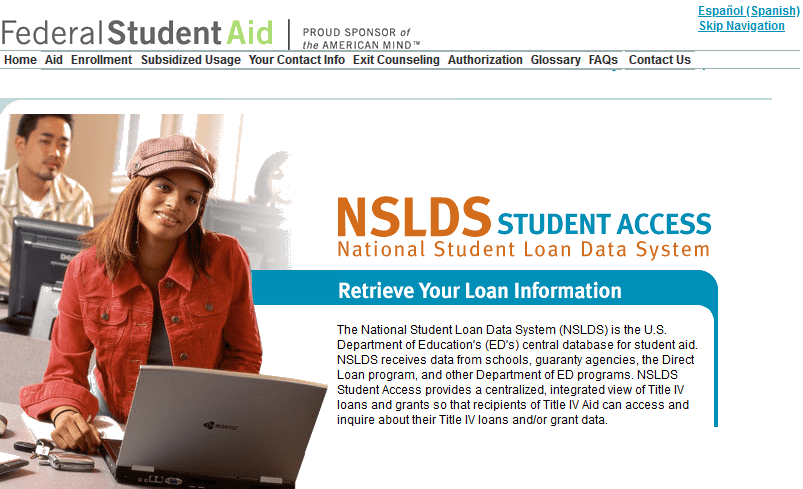It’s hard enough paying down student loan debt. But when you’re making all of your payments on time and your balance keeps going UP, it feels impossible.
Worse, when you see your debt growing while you’re making on-time payments, it can make you wonder if there’s any point in making those payments at all.
If that’s your situation, you can turn things around with a little information and a few action steps. And that starts with knowing everything about your student loans.
Know Your Loans

Millions of students take out student loans each year, and then forget about them until it’s time to start making payments, usually six months after leaving school. Since that’s often their first dance with debt, most people don’t fully understand what they’re signing up for – and that can lead to financial problems down the road.
At the start, all of your loans probably came from the same source (usually the federal government), but they may not end up with the same servicer (the company that manages the loans and loan payments). With multiple loans, you could end up with a bunch of different:
- interest rates
- payment dates
- payment amounts
- payment methods (autopay or by check, for example)
To find out everything you need to know about your student loans, log on to your account on the National Student Loan Data System and click on the “financial aid review” button. You’ll find an “aid summary” chart with details about all of your student loans. If you click on individual loans, you’ll find the loan servicer.

Armed with all of that information, you’ll be able to div out which of your loan balances are increasing, and make a plan to stop them.
How Student Loan Amortization Works
Student loans (federal or private) are amortizing loans, also called installment loans. You make the same payment every month over the life of your loan to pay it off with interest. But in some cases, amortization can start to work against you, increasing your loan balance instead of decreasing it.
Amortization is just an accounting process that gradually reduces a loan balance over time through equal installment payments. Each payment is split into two portions: principal and interest. While the payments themselves stay the same, the interest and principal portions change every time.
Student loans sometimes act differently, causing loan balances to increase – an effect called negative amortization. The two main reasons this happens:
- You have an unsubsidized federal loan, and interest starts accumulating while you’re in school.
- You switched to a different repayment plan, and the payments aren’t big enough to make a full amortizing payment.
When your loan is in a state of negative amortization (NegAm), unpaid interest gets added to your loan balance. Because of that, you may end up paying interest on your unpaid interest. And that can make it even harder to pay off this debt. But there are things you can do to start turning things around, and at least keep your balance from increasing even if you can’t start decreasing it yet.
“Unsubsidized” Means Interest Piles Up
If you have unsubsidized federal student loans, they start charging interest as soon as you get the money. You don’t have to start making payments yet – those officially start six months after you leave school (in most cases) – but you are being charged interest.
During that time when you’re in school and not yet making scheduled payments, every penny of interest they charge gets added to your loan balance. That means you’ll owe more than you borrowed right away.
The Fix:
If you can, make monthly payments that are big enough to cover the interest you’re being charged. If you can’t do that, pay anything you can, whenever you can, to keep that balance in check. That way, your debt won’t grow to an unmanageable amount before you even graduate.
Many Payment Plans Lead to NegAm
When you first take out student loans, you’re automatically put on the standard payment plan. That includes fully amortizing loan payments. Every payment is designed to pay the full interest charge plus some principal to lower your loan balance. As you make payments over time, the interest portion shrinks and the principal portion grows, eventually paying off the loan entirely.
But if you’ve switched to another federal payment plan, your monthly payments may not be enough to cover the full interest charges. That means the extra (unpaid) interest will be added to your loan balance, and none of your payment will go toward paying down principal. So you could be making your full payments – sometimes even more than that – on time every month and still watch your loan balance increase.
The Fix:
Look at the amortization schedule (the report that breaks down the principal and interest of every payment, available from your servicer) for your loan. You’ll see how the amortizing payment would break out into principal and interest. As long as you make a payment that covers the interest portion, your loan balance won’t increase.
Keep in mind that servicers apply payments to interest first (regardless of your intention). When the full interest amount has been covered, then any amount leftover gets applied toward paying down the loan principal balance.

Michele Cagan is a CPA, author, and financial mentor. With more than 20 years of experience, she offers unique insights into small business and personal financial planning, from breaking out of debt and minimizing taxes to maximizing income and building wealth. Michele has written numerous articles and books about personal finance, investing, and accounting.
